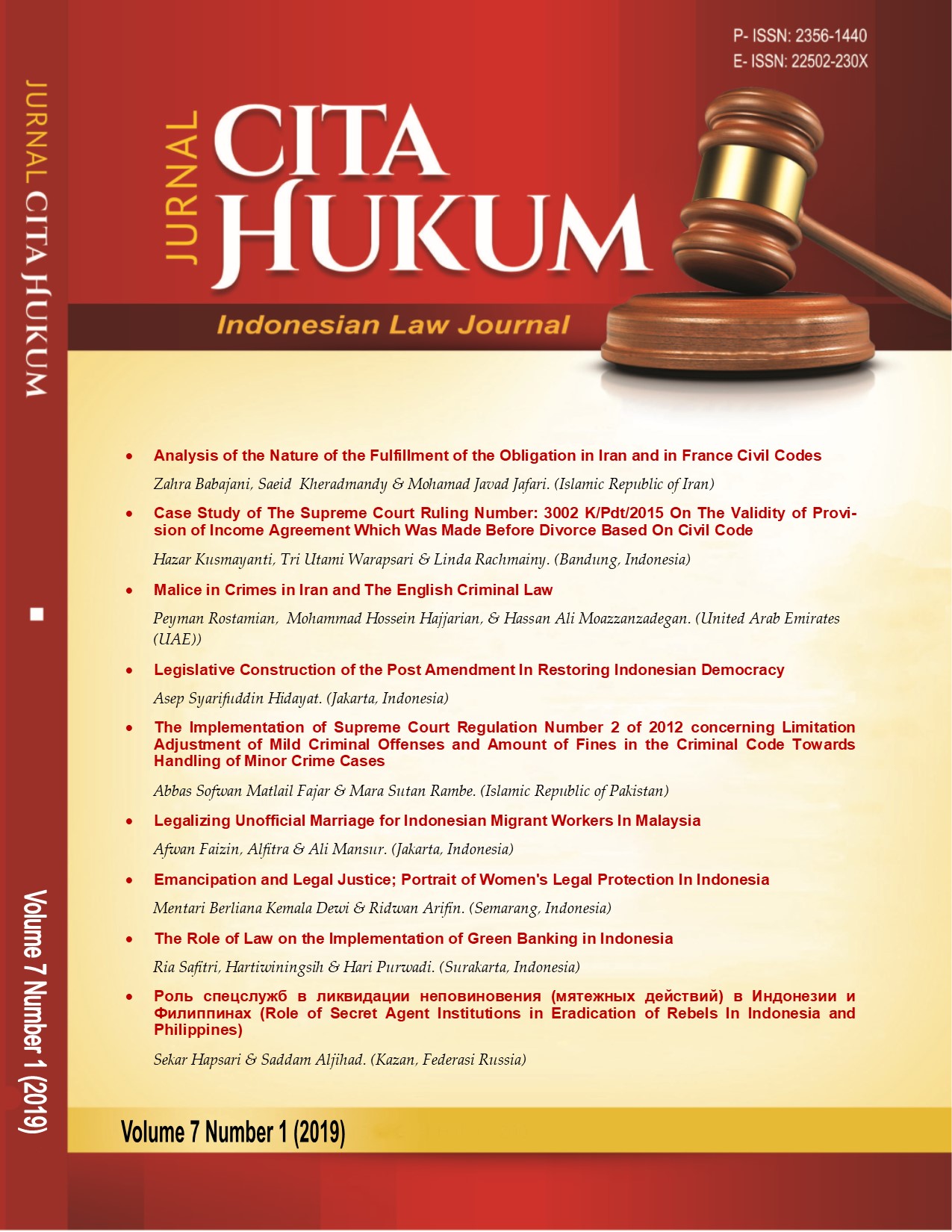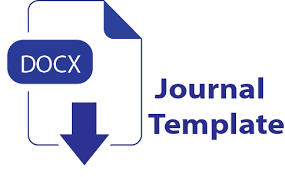Digital (Electronic) Democracy in Russia: Issues of Further Development
DOI:
https://doi.org/10.15408/jch.v10i3.25473Keywords:
Information society, Electronic state, Information and communication technologies, People's power, Electronic ServicesAbstract
The study addresses the issues of further development of digital (electronic) democracy in Russia. Digitalization has penetrated all spheres of public life. The sphere of public administration is no exception. The authors provide various scientific interpretations of democracy as a form of exercise of state power, in which the individual is given maximum freedom to exercise their rights and freedoms and the ability to participate in the state's public life. The study employs general scientific and private scientific methods. The authors conclude that developing information and communication technologies will completely reorganise public administration systems. The advancement of scientific and technological progress makes it possible to implement the power of the people in various digital (electronic) forms. The construction of an electronic state is in full swing. To develop a highly advanced, sovereign, prosperous state, it is necessary to safely introduce the tools of digital (electronic) democracy into the country's political life.References
Antonov, Ia.V. (2016). Elektronnaia demokratiia kak konstitutsionno-pravovoi fenomen [E-democracy as a political and legal mechanism for harmonizing private and public interests]. State Power and Local Self-government. No. 11, 13-17.
Antonov, Ia.V. (2017). K voprosu o neobkhodimosti sovershenstvovaniia pravovogo regulirovaniia elektronnoi demokratii v Rossii [About the issue of the need for improvement of legal regulation of E-democracy in Russia]. State Power and Local Self-government. No. 7, 3-7.
Bondarenko, S.V. (2004). Sotsialnye tekhnologii “elektronnoi demokratii” (popytka verifikatsii konstrukta) [Social technologies of “e-democracy” (an attempt to verify the construct)]. Teoriia i praktika obshchestvenno-nauchnoi informatsii. No. 19, 171-196.
Council of Europe. (2009). Recommendation CM/Rec(2009)1 of the Committee of Ministers of the Council of Europe to member states on electronic democracy (e-democracy). Retrieved from https://www.coe.int/t/dgap/goodgovernance/Activities/Key-Texts/Recommendations/Recommendation_CM_Rec2009_1_en_PDF.pdf
Etzioni, A. (1995). The spirit of community: Rights, responsibilities and the communitarian agenda. New York, NY, USA: Touchstone.
Gates, B. (2000). Biznes so skorostiu mysli [Business @ the speed of thought]. Moscow, Russia: Eksmo-Press.
Government of the Russian Federation. (2014). Decree of the Government of the Russian Federation of April 15, 2014 No. 313 "On approval of the State Program of the Russian Federation ‘Information Society’”. Sobranie Zakonodatel’stva Rossiiskoi Federatsii [SZ RF] [Collection of Legislation of the RF] 05.05.2014, No. 18 (Part 2), Item 2159.
Iuzhakov, V.N. (2016). Gosudarstvennoe upravlenie po rezultatam: Model dlia Rossii [Results-based public administration: A model for Russia]. Public Administration Issues. No. 2, 165-174.
Ivanov, D.V. (2015). Virtualizatsiia obshchestva. Versiia 2.0. [The Virtualization of society. Version 2.0.]. Saint Petersburg, Russia: Peterburgskoe Vostokovedenie.
Kushniruk, R.P. (2016). Kiberprostranstvo i elektronnaia demokratiia: K voprosu o stanovlenii iavlenii i nauchnykh kategorii [Cyberspace and e-democracy: On the formation of phenomena and scientific categories]. Legal Concept. Vol. 1, No. 30, pp. 43-50.
Lenta.ru. (2005, October 15). Bespretsedentnoe estonskoe internet-golosovanie priznano uspeshnym [The unprecedented Estonian Internet voting is deemed a success]. Retrieved from https://lenta.ru/news/2005/10/15/ee/
Lolaeva, A.S. (2020a). Poniatie i sushchnost “elektronnykh uslug”, predostavliaemykh organami vlasti RF [The concept and essence of "electronic services" provided by the authorities of the Russian Federation]. In V. Kh. Temirayev & A.B. Kudzaev (Eds.), Vestnik nauchnykh trudov molodykh uchenykh, aspirantov i magistrantov FGBOU VO “Gorskii gosudarstvennyi agrarnyi universitet” (pp. 250-252). Vladikavkaz, Russia: Gorsky State Agrarian University.
Lolaeva, A.S. (2020b). Vzaimodeistvie federalnykh i regionalnykh organov vlasti i organov mestnogo samoupravleniia v ramkakh predostavleniia uslug v elektronnoi forme v RF [Interaction of federal and regional authorities and local authorities in the provision of services in the electronic form in the Russian Federation]. In V. Kh. Temirayev & A.B. Kudzaev (Eds.), Vestnik nauchnykh trudov molodykh uchenykh, aspirantov i magistrantov FGBOU VO “Gorskii gosudarstvennyi agrarnyi universitet” (pp. 252-254). Vladikavkaz, Russia: Gorsky State Agrarian University.
Lolaeva, A.S. (2021a). Elektronnoe pravitelstvo v Rossii: Perspektivy dalneishego razvitiia [E-government in Russia: Prospects for further development]. Constitutional and Municipal Law. No. 10, 19-22.
Lolaeva, A.S. (2021b). TSifrovaia (elektronnaia) i traditsionnaia demokratiia: Voprosy sootnosheniia [Digital (electronic) democracy and traditional democracy: The issues of correlation]. Constitutional and Municipal Law. No. 4, 28-32.
Maiorova, A. (2001, March 22). Deviatyi val e-mail. Kompiutery i Internet kak katalizatory “informatsionnogo vzryva” [The ninth wave of E-mail. Computers and the Internet as catalysts of the “information boom”]. Izvestiia, p. 5.
Masuda, I. (1981). The information society as post-industrial society. Washington, DC, USA: World Future Society.
Ministry of Digital Development, Telecommunications and Mass Media of the Russian Federation. (2012). Draft Concept for the Development of E-Democracy Elements in the Russian Federation until 2020. Retrieved from http://e-democratia.ru/s/blog/msg?textld=l0292940
Ovchinnikov, V.A. & Antonov, Ia.V. (2016). Pravovaia struktura elektronnogo golosovaniia v sisteme elektronnoi demokratii [Legal structure of electronic voting in the system of e-democracy]. Russian Justice. No. 5, 5-8.
President of the Russian Federation. (2012). Decree of the President of the Russian Federation of May 7, 2012 No. 601 “On the main directions of improvement of the public administration system”. Retrieved from http://publication.pravo.gov.ru/Document/View/0001201205070016
President of the Russian Federation. (2017). Decree of the President of the Russian Federation of May 9, 2017 No. 203 “On the strategy for the development of information society in the Russian Federation for 2017-2030”. Retrieved from http://publication.pravo.gov.ru/Document/View/0001201705100002
State Duma of the Russian Federation. (2006). Federal Law of July 27, 2006 No. 149-FZ “On information, information technology, and the protection of information”. Sobranie Zakonodatel’stva Rossiiskoi Federatsii [SZ RF] [Collection of Legislation of the RF]. 31.07.2006, No. 31 (Part 1), Item 3448.
Timofeeva, L.N. (ed.) (2012). Politicheskaia kommunikativistika: teoriia, metodologiia i praktika [Political communicativism: Theory, methodology, and practice]. Moscow, Russia: Russian Political Science Association (RPSA).
Turonok, S.G. (2001). Internet i politicheskii protsess [The Internet and the political process]. Social Sciences and Contemporary World. No. 2, 51-63.











